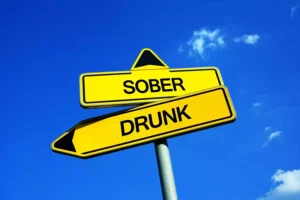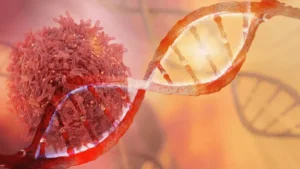
Additionally, some substance abuse and addictions counselors might opt to start their own private clinics. Substance abuse and addictions counselors often work in the settings of correctional institutions, schools, social and human care agencies, and hospitals. The Hazelden Betty Ford Graduate School educates future leaders in addiction counseling who provide evidence-based integrated care for substance use substance abuse counseling and co-occurring disorders. They are part of most treatment plans and usually happen with a licensed behavioral health professional, either one-on-one or in a group setting. On the occasion of a third slip (or sooner if the counsellor deems it necessary), the client is transferred to a stabilization group. During this course the group develops a daily behaviour action plan for abstinence drug counseling.
Substance Abuse Counselor Careers by Degree Level
Following this educational path may help prepare you with the necessary skills and experiences to pursue a career in the counseling field. At Addiction Counselor, we connect our readers with the tools and resources they need to begin a successful career in the field of addiction counseling. Alcoholism and Substance Abuse Counselor candidates must complete and document at least 350 clock hours of education and training that focus on chemical dependence counseling knowledge, skills, and professional techniques. Successfully completed college credit hours translate to 15 clock hours per one credit hour. Continuing education units (CEUs) count as well; one CEU equals a total of 10 clock hours.

Counselor Training and Characteristics
However, the counselor does not hesitate to offer education, advice, and guidance where appropriate. Grand Canyon University’s Master of Science in Addiction Counseling program focuses on a range of addiction-related issues and treatment. Chances are many of those people are dealing with a substance abuse problem, whether they know it or not. Research has shown that millions of people suffer from substance abuse each year. Most states require practitioners to be licensed or working under a licensed counselor. Every little bit helps, whether it’s through the federal government, your state, private organizations, the university itself, or even your current employer.
- A career in addiction counseling is often appealing to those who want to make helping others their life’s work.
- In California, for example, more than one type of licensing might be needed to engage in substance abuse counseling.
- As you have seen throughout this guide, the path to becoming a CADC is structured and requires dedication, from obtaining the necessary education to passing the certification exam and continuing professional development.
Recovery Coach
- Through frequent check-ins, counselors can help people consider why they behave the ways they do and learn to make different choices.
- Addiction counselors may offer therapy sessions for those in longer-term stay facilities who are dealing with substance use, addiction and other mental health disorders.
- An addictive behavior is the result of biological, psychological, and socioeconomic factors that trigger maladaptive behavior (self-medication) and drug counseling.
In addition to providing direct counseling and group therapy, substance abuse counselors must complete paperwork, prepare lessons for therapy groups, and review treatment plans. A critical part of their job is to thoroughly document counseling sessions and track of patient outcomes. Drug and alcohol counselors may also provide referrals to other professionals such as medical doctors and psychologists when clients have problems that fall outside their scope of practice. Several states have started recognizing the need for master’s-degree-level addiction counseling licensure and certification. But there are other reasons a graduate program is your best option if you’re looking for a long-term career in the substance use disorder (SUD) counseling field. You will gain valuable real-world experience working with highly qualified counselors.

Continuing education is essential to maintain your addiction counselor certification and stay current with any developments in the addiction field. Depending on your state and the type of licensure you plan to pursue, you might also need to complete supervised, post-graduate professional practice as part of your substance abuse counseling training. It is best suited to clients with psychoactive drug addiction and can show up for scheduled outpatient sessions for drug counseling. The program admits clients who actively use alcohol and other drugs and those who have already achieved abstinence as inpatients or outpatients. The program treats all types of chemical addiction and cross-addictions irrespective of the client’s drug of choice (e.g., alcohol, cocaine, heroin) and has been used successfully with adult and adolescent populations (treated separately).

Although you may be able to start working in the substance abuse counseling field with just a high school diploma, it’s a good idea to seek further education. Most states require higher education for their addiction counselors, and, in any case, college classes will help you get better at the job. If you’ve ever dreamed of a rewarding career where you truly help others, working as a drug and alcohol counselor can be a great option to consider. At Sober College of Addiction Studies, we can help you fulfill the educational requirements that are part of substance abuse counselor certification. Here’s a quick look at the job itself and the requirements you will need to fulfill in order to become certified. While people have shared their experiences with one another for a long time, peer support — such as advocating, mentoring, and educating — is becoming increasingly important in recovery care.

Examination
Professional mental health counselors may be able to shift their focus to addiction by pursuing certifications from NCC AP. As you begin your search for a substance abuse counselor degree program to continue your education, always check that the university is accredited by a regional agency. Schools that don’t submit to accreditation audits probably don’t offer the highest quality education. After earning your substance abuse counseling degree, you will probably need to earn clinical hours at substance abuse centers or other related facilities before you can become credentialed by your state.

Social Media
- For example, some students earn a masters in applied behavior analysis or a masters in psychology.
- It may give you a basis to estimate what you might earn at some point if you enter this career.
- On the occasion of a third slip (or sooner if the counsellor deems it necessary), the client is transferred to a stabilization group.
- In addition to creating a therapeutic alliance between the client and the counsellor, drug counseling is also one of the most important TA approaches.
- New York licensure exam requirements include a passing score on the National Clinical Mental Health Counselor Examination (NCMHCE) given by the National Board for Certified Counselors (NBCC).
